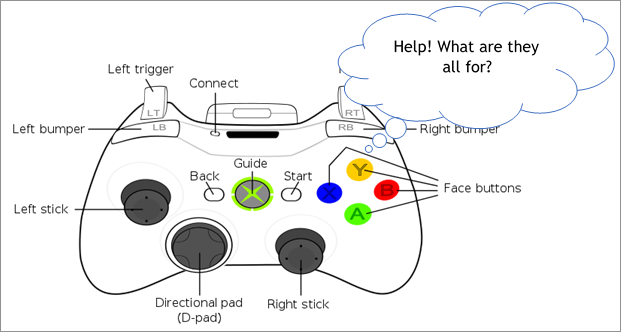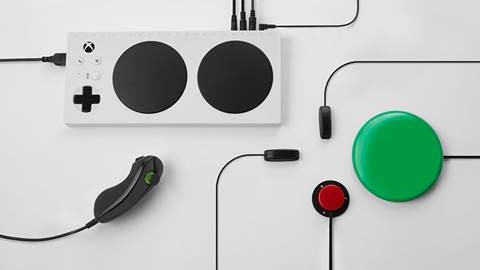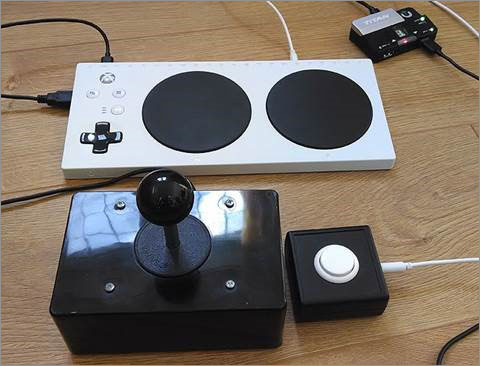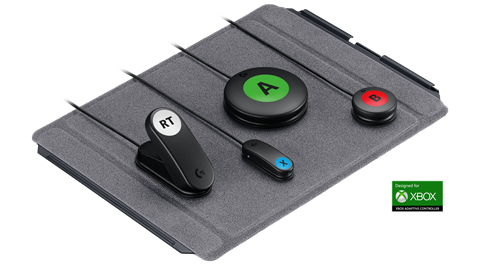Posted by Paul Nisbet on the 16th December, 2019

As well as noble and worthy activities like communication and access to education, technology can of course also be used for having fun and playing. If you are interested in accessible computer gaming, read on. Just in time for Christmas!
Recently I've been researching options for playing computer games, and there's a lot of exciting developments happening in this area. I personally don't play computer games (far too busy working?) but that's my loss and clearly lots of people do. I have tried a few games with my nephew Angus but usually I last about 3 seconds before being shot in the back / running over the edge of the cliff / scoring an own goal.
The average games controller has tiny wee thumbsticks and a million miniature buttons and triggers, so how can computer games be more accessible to those of us who find the controls difficult to use or in my case have no clue?

The simplest way to find out is to head over to the fantastic Special Effect web site where there are brilliant videos showing how real people are playing games and how the technology has been adapted to make the games more accessible. There are some really inspiring stories. The other place to find out about accessible technology is Barrie Ellis' excellent OneSwitch.org site.
Accessible gaming used to require quite a bit of DIY but this is changing - last year Microsoft released the £75 Xbox Adaptive Controller which lets us replace the aforementioned miniature fiddly buttons with switches that can be the size, shape and position you need.

It also lets you plug in different joysticks - e.g. bigger ones - to replace the tiny thumbsticks. I have this UltraStik from OneSwitch.org out on loan to a young man and it seems to be working well for him.

Last month Logitech joined the fun by releasing their Adaptive Gaming Kit which for £90 gives you:
- 3 small button switches (~ Specs switch size)
- 3 large switches (~ Jelly bean size)
- 2 'variable triggers'
- 4 light touch buttons
- And a velcro-style Game Board so you can position them where you want them.

There's an interesting video on the Logitech site, and this comment from David Putrino, Director of the Abilities Research Center at Mount Sinai in New York caught my attention:
Fun actually modulates the outcome of your therapy and it's really important for neurological recovery.
Perhaps we could alter this comment slightly and suggest that:
Fun actually modulates the outcome of your education and it's really important for neurological development?
I think gaming has huge potential for children and young people to develop technology access skills that can be used for in school and for communication, to participate and to play independently, and most importantly to have fun.



Our social media sites - YouTube, Twitter and Facebook